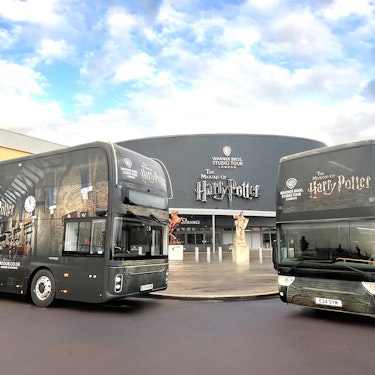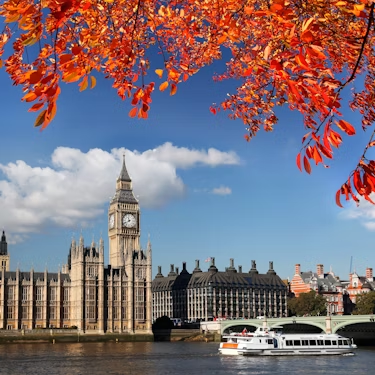More about: Things to do in London in 3 days
Many people enjoy taking the City Sightseeing tour bus to get a good overview of a city before heading out to explore on their own. If this is you, I recommend doing it on your first day in London to get a good orientation. However, I will guide you step by step to visit London in 3 days in the best possible way. Let's get started!
Day 1: Explore Westminster
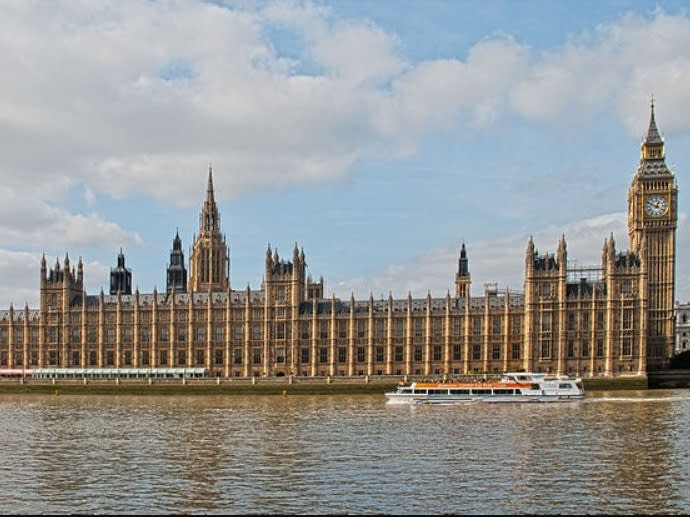
I recommend that you start your trip to London in Westminster, as it is the geographical, cultural and political centre of the city - Westminster is actually its own city within London! Here you will find some of London's most iconic buildings, such as Buckingham Palace, the Palace of Westminster and Westminster Abbey.
Today's route is walkable, but you can also get around by public transport, taxi or a tour bus.
Parliament Square
We will start our itinerary in Parliament Square, which is a well-known public square in Westminster that is easy to reach by public transport and is also a stop on all major London sightseeing buses.
Around the square you will also find statues of several famous people such as Winston Churchill, Abraham Lincoln, Robert Peel and Gandhi.
This popular square is surrounded by famous buildings such as Westminster Abbey, St Margaret's Church, the UK Supreme Court and the Palace of Westminster.
Westminster Abbey
Westminster Abbey is one of the most famous and impressive churches in England. It dates back to 1245 and was built mostly in the Gothic style.
Inside the church are tombs and monuments commemorating some of the most prominent Britons of the last 1,000 years, including kings, scientists, aristocrats and artists.
If you plan to visit Westminster Abbey, be sure to leave extra time to get in and see it all, as it is a very special place.
Churchill War Rooms
The Churchill War Rooms are made up of two connected museums:
- The Cabinet War Rooms, which allow visitors to explore the huge secret underground World War 2 bunker.
- The Churchill Museum, which is a large room dedicated to the life of Winston Churchill, from his early years until his death in 1965, with a focus on his long political career.
St. James's Park
St. James's Park is one of London' s finest parks and is known for its famous residents: pelicans.
There is a café located within the park if you need a break for tea, coffee or a light lunch.
Buckingham Palace
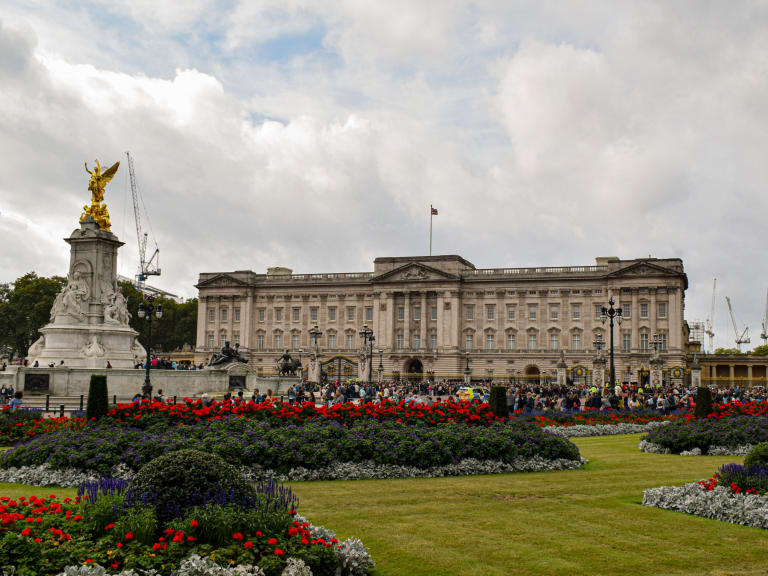
Buckingham Palace is the most famous palace in the UK, dating back to 1703 and is the main London residence of the ruler of the United Kingdom.
If you want to see inside, you can book a tour of Buckingham Palace to see the State Rooms, the Throne Rooms and the Royal Picture Gallery.
Changing of the Guard Ceremony
If you want to see the Changing of the Guard ceremony, please note that it takes place at 11am, so you'll need to skip the morning visit to Westminster Abbey or the Churchill War Rooms to get to Buckingham Palace in time. Your choice!
Also, please note that it takes place every day in June and July, but only on Mondays, Wednesdays, Fridays and Sundays the rest of the year and lasts about 45 minutes.
Piccadilly Circus
Now I recommend you head to Piccadilly Circus, a famous circular road junction known for its neon and advertising signs.
Here you'll find the legendary Shaftesbury Memorial Fountain.
Trafalgar Square
Trafalgar Square is one of London' s most popular public squares and is home to Nelson's Column (a monument to Admiral Horatio Nelson) and London's famous stone lion statues.
The square also has street performers and contemporary art to enjoy and take a break.
Whitehall
Now I recommend walking down Whitehall, the street that runs south from Trafalgar Square, towards Parliament Square, the place where you started your day.
Whitehall Street is named after Whitehall Palace, a large medieval royal palace complex that stood here until it was destroyed by fire in 1698.
By the way, a reminder that if you want to take this tour faster and comfortably seated, you can book a seat on the City Sightseeing sightseeing bus.
Westminster Bridge
Now I recommend walking across Parliament Square towards Westminster Bridge, which dates back to 1862 and from where you will have a fantastic view of the Houses of Parliament and the River Thames.
You can then take a stroll along the Thames or, better still, finish the day with a Thames cruise with dinner and live music.
Day 2: City of London
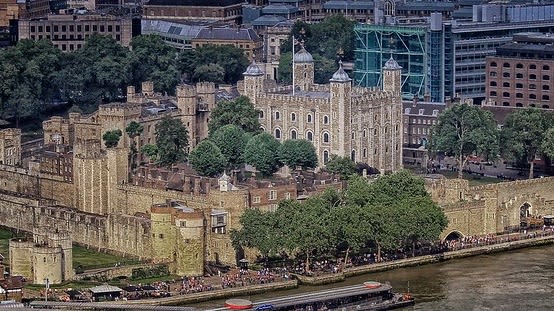
For the second day I recommend exploring the City of London, home to much of the city's financial and banking services, and also the oldest part of the city. Tower of London
Tower of London
The Tower of London was first built by William the Conqueror in 1078 as a royal castle and defence tower. Then, over the centuries, it served many purposes, including a fortress, a prison and an armoury.
It is definitely one of the most popular attractions in the British capital, so I recommend being there close to opening time and buying your Tower of London tickets in advance.
By the way, if you have a London pass, you don't need to buy tickets for the Tower of London, as you will be able to get in for free.
Sky Garden
If you like beautiful views, I recommend a stop at Sky Garden, London's highest public garden.
Although the Sky Garden is technically a public garden and can be visited for free, I recommend booking a space in advance, as it is often fully booked, and it's not always possible to get the best views without an appointment.
You can also walk to St Paul's Cathedral (about a 15-minute walk) or take the London Underground from The Monument stop to St Paul's Cathedral stop.
St Paul's Cathedral
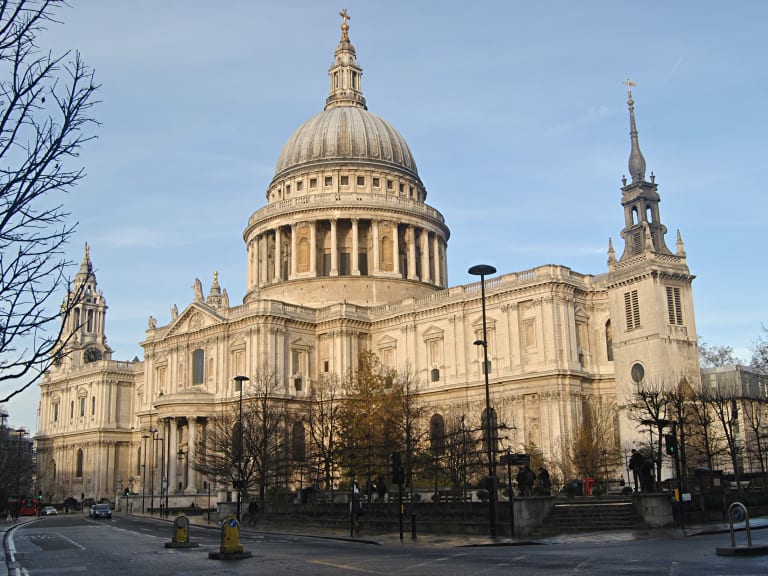
St Paul's Cathedral dates back to 1697, after the previous cathedral was badly destroyed by the Great Fire of London in 1666.
The cathedral's dome is a recognisable feature of the London skyline and the church has long been seen as a symbol of the spirit of the British people, especially during the Second World War.
The church is open to visitors and a self-guided tour is included when you buy your ticket to St Paul's Cathedral.
Shakespeare Globe
Now I recommend you head across the Millennium Bridge, a steel pedestrian suspension bridgeto see Shakespeare's Globe.
The reconstruction of The Globe was the dream project of American actor and director Sam Wanamaker.
If you want to see inside the theatre, you can visit the museum exhibition and understand how it was built.
Borough Market
Borough Market is the best known and one of the oldest markets in the UK and is believed to have been in operation since 1014!
Today, the market is full of fresh produce, including meat and fish, baked goods, cheeses, flowers, wines, spices and other foods.
There are also cafes, demonstration kitchens and restaurants that are part of the market, as well as many food stalls selling ready-to-eat food, including sandwiches and all kinds of street food.
The market is usually open daily, until 17:00 or 18:00 PM, although it closes at 14:00 on Sundays.
The Shard
The Shard skyscraper houses several restaurants, a hotel, offices, shops and a viewing gallery. It was completed in 2012 and is currently the tallest building in Western Europe at 309 metres high with 87 floors.
The views from the Shard are free for those with a London Pass, but you can also buy tickets for The Shard online, which will take you up to the 72nd floor.
Another way to enjoy the views is to head to the GŎNG Bar on the 21st floor, and although it's not as high as the observation deck, it still offers panoramic views of the city for the price of a cocktail. This is a great place to enjoy a drink before or after dinner.
Day 3: Kensington
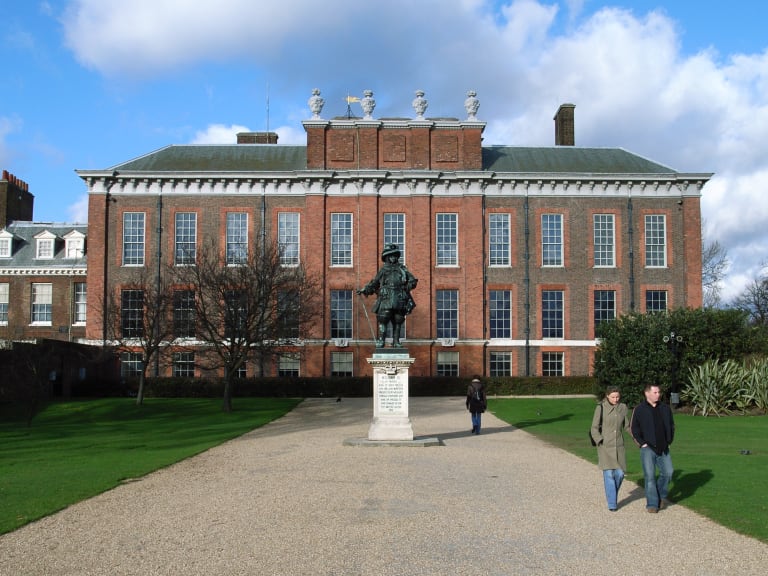
For your last day, I suggest you explore a neighbourhood like Kensington in the morning and then head to Windsor Castle in the afternoon.
Kensington Palace
Kensington Palace is a grand 17th century house that was first used as a royal residence by King William II and Queen Mary II.
Despite being a working royal palace, tourists can visit many of the palace's rooms throughout the year. There is a lot to see here and you can easily spend several hours wandering through the maze of rooms.
I recommend visiting the palace on a weekday rather than a weekend and booking tickets for Kensington Palace in advance to avoid queues.
Kensington Gardens
After visiting the palace, I recommend spending some time exploring the surrounding area of Kensington Gardens. It's a beautiful green space and a great place to stroll around.
Probably the most striking feature of the park is the Albert Memorial, a giant monument to Prince Albert who died of typhoid fever in 1861, leaving his wife, Queen Victoria, badly affected.
Afternoon tea at Kensington
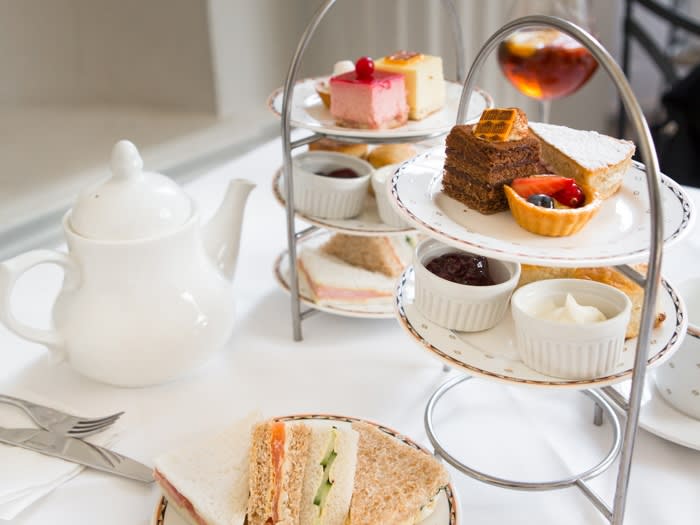
The tradition of afternoon tea originated in the aristocratic houses of England in the 19th century, and there's no better place to have afternoon tea than in London.
You'll have plenty of options in London: from casual coffee shops where you can get a cuppa and a scone, to luxury hotels offering an amazing tea experience and even on board a sightseeing bus that tours the city of London.
Victoria & Albert Museum
The Victoria & Albert Museum, often known as the V&A, is one of the world's leading art and design museums.
Admission to see the permanent collection at the V&A is free.
Some temporary exhibitions are also free, but there is usually a fee to enter the main ones, unless you have a London Pass.
Last Night in the West End
The West End is one of the world's most renowned venues, along with Broadway in New York, for professional theatre.
The district is home to over 30 theatres offering a wide variety of musicals and plays, from rock concerts to opera, films and comedy shows.
Buy tickets to one of London's musicals and put the finishing touch to your stay in the British capital.


